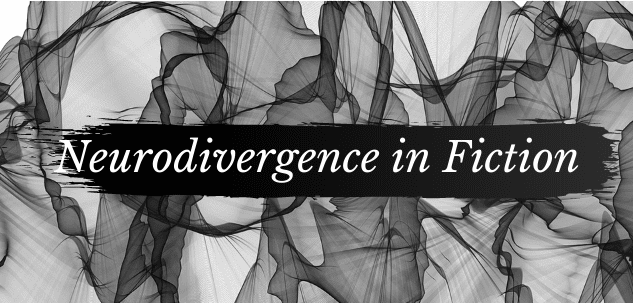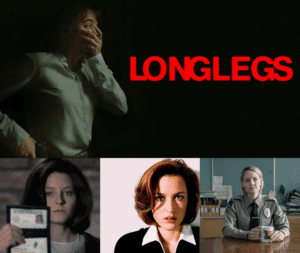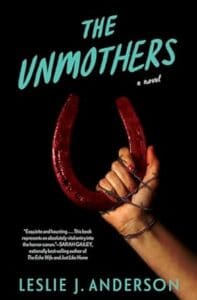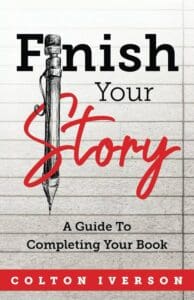
Hello all, and welcome to this week’s article for FanFiAddict’s series on Neurodivergence in Fiction. I cannot understate how appreciative I am for the overwhelming amount of support and enthusiasm I have seen for this series of mine; thank you! For the next several months we will be bringing you a guest post every Wednesday from a neurodivergent author. This will hopefully highlight some of the challenges that come with writing for a largely neurotypical audience, while also giving valuable insight to the craft itself and providing a window into the neurodivergent experience — at least through the lens of fiction.
This week, we are joined by Cinaedh Vik who explains how he came to discover that his writing was heavily impacted by his autism and why he has decided to embrace that as his default setting while staying aware of how a neurotypical audience might respond to it.
As always, if you need to catch up on any articles, check out the landing page for the series here.
And, without further ado, here’s the article.
As writers, one of the scary but necessary things we have to do is revise our work, and to best do that, we need to share our work with others so that we can analyze it from the outside as well as from the inside. As neurodivergent writers, there’s an added layer of confusion to this already-confusing and daring process of baring one’s soul: what if there’s a problem in translation? How much of the feedback is due to issues in the text that need addressing, and how much of it is the mighty gulf between neurodivergent writers and neurotypical readers?
One of the things that keeps happening when I solicit feedback on my writing is beta readers saying they couldn’t connect with characters. They felt the characters were distant or unemotional, or their thought processes opaque. I think we’ve all heard this at some point, and I wanted to really examine what was going on so that I could do better, deliver on the promise of a rewarding story.
That led me to rewrite after rewrite, changing the voice and style, what details were included, how I telegraphed emotional states. I read The Emotional Craft of Fiction by Donald Maass, which is fantastic. I did the exercises. I thought and thought and wrote and rewrote. But to my dismay, the more I learned and the more feedback I absorbed, the more I felt that my story worsened. It felt weaker to me, and the characters became wooden. How could this be? Hadn’t I followed all the right advice? So why were things going in the opposite direction?
I kept at it, determined to discover the secret, but I admit I grew frustrated. I put the story down and worked on another one, this one with an explicitly autistic (like me) protagonist set in the same storyworld as the other book I’d quit working on.
That’s when I had my breakthrough.
Reader feedback on this story, written in the same style in the same setting with different characters, was overwhelmingly positive. What had I done differently? All I’d done was tell the reader the POV was autistic. I’d told them what to expect. To recalibrate their perspective. But I hadn’t recalibrated anything when I wrote these books. Just as there’s often a “white default” if no character race is mentioned, there’s a neurotypical default if no neurodivergence is mentioned.
If you’re not sure what I mean by “white default” then I recommend reading the amazing Craft in the Real World by Matthew Salesses, which covers this and also the kind of epiphany I had when discovering I write neurodivergent by default.
I went back to the story I couldn’t fix. The characters felt real and emotionally connected to me when I’d first written them. What if I’d told readers this book featured an autistic POV too? I hadn’t set out to write one. I wrote about a cartographer who studies sea monsters and chases a spy across a trackless ocean. I wrote about ghosts of the past and the way we grieve, the way we look to the future and find our places in it. I thought I had been writing a “default” without thinking about it, but the breakthrough was learning that my default is not the same as some of the readers I had shared with, which is not their fault. We each have our own default set of expectations.
Knowing this, I was able to approach the problem with new eyes: How much of the critical feedback was due to my needing to improve the text, and how much of it was due to this difference of perspective, and how could I address the latter in a way that wouldn’t compromise my character voice and chosen narrative style?
One thing I could do is say it straight up: this character is autistic.I think that’d be the simplest way and the clearest. I didn’t want to do that in this book, because once I’d had the epiphany, I wanted to challenge readers to accept the character without my having to tell them she’s autistic. So often, autistics will hear the unintentional abuse, “I don’t hate autistic people, just…” where after the Just they’ll list a bunch of traits typical for autistic people.
I could use in-universe context to signal that my protagonist is autistic, such as comparing them to other non-autistic characters in conversation, interaction, and body language.
I could also seek out autistic beta readers to add to my critical feedback and gain perspective from people for whom that re-adjustment doesn’t have to happen. Figure out who my intended audience is for this book, and write for them. For me. “Readers” is itself a minefield, as there is no uniform, ideal, isometric reader. Readers have a wide variety of perspectives, each taking a different experience from the story.
Whatever choice I made, I had to also consider that if I intended to pursue traditional publishing, I would have to keep in mind that agents and editors are also readers, and I’d have to stick my landing with them too, knowing the industry has a lot of catching up to do with writers historically marginalized. The system itself, the academic basis upon which stories are judged and categorized and the criteria for what makes a “good story” in terms of structure, tension, stakes, agency and action – in the West comes partially from attempts to push a certain structure and political ideology during the Cold War.
In Craft in the Real World, Salesses identifies this bias and points out different storytelling traditions from other parts of the world, other cultures and social backgrounds. Jane Alison calls it out in Meander, Spiral, Explode. As with the emotional connection, this is another place neurodivergent writers have to consider in how much they want to integrate to meet expectations, and how much they’d like to challenge and carve out space for themselves and their perspectives.
It should have been obvious to me that I write autistic characters by default because that’s my brain’s lived-experience, but we’re often taken unaware by the things we can’t see in ourselves. We draw our stories from ourselves, from our pasts and presents and imaginations, and it’s unavoidable that some of who we are becomes stamped in every book we write. I think it’s a great thing.
I’ve decided to embrace my default, my autistic characters and their stories, and I want to use my epiphany to do what I’ve been doing by accident on purpose going forward. To deliberately choose to write autistic characters, and deliberately choose to make some characters neurotypical when the story suits it. Now that I know these things, I can control them and that will make my narratives stronger. I hope sharing this will help your stories become stronger too.
About the Author

Cina has written two books, with the query forests fast approaching like Birnam Wood. He’s attended Futurescapes and other workshops, and loves to write about outsiders, found-family, cool sea animals and sapient plants, and stories where nobody uses weapons to advance the plot. By day he’s an electrical engineer. When he’s not at the keyboard, you might find him with a guitar or a different kind of keyboard, practicing nature photography, painting, skateboarding, or spending time with his family in the outdoors of New England.
Twitter: https://twitter.com/CinaedhVik




I love the idea of embracing who we are and how this impacts our writing! (Personally, I think there’s too much catering in this industry, too many lovely books that aren’t published, or are damaged, by trying to make them fit; one of many, many reasons I’m taking the independent route, but I’m not trying to force this on anyone, just not leave any misconceptions about where I stand.)
I certainly write acespec characters by default (most of the time), because I’m acespec and that’s what makes sense to me, back from before I knew the word – or understood how very different from me so many people are. And I really don’t think that could have been avoided. And maybe some other things I don’t know the terms for… 🙂 … And probably some dyslexics, even have one or two I’d be willing to bet are dyslexic, but it doesn’t come up in the story, so do I really know?